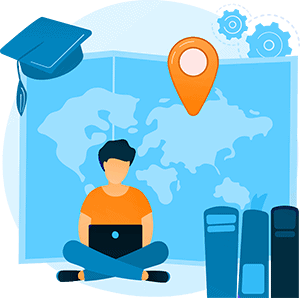On-Demand Webinar
Transforming Talent Development
Through Personalized Learning at Scale

View now
The impact of COVID-19 has put the focus on how training is delivered, with companies scrambling to adopt virtual and asynchronous delivery. But have you ever questioned how effective regular e-learning really is? Did you know that new ‘adaptive learning’ approaches deliver dramatically better results than typical e-learning, often for less effort? In this session, Nick Howe, CLO of Area9 Lyceum, will discuss what learning science tells us about how people learn (or don’t!), why regular e-learning fails, and how to address those challenges to create high-impact, high-reliability remote learning.

Nick Howe | Chief Learning Officer | Area9 Lyceum
Nick Howe is the CLO of Area9 Lyceum and a senior executive with substantial experience building global corporate learning functions and a global professional services capability. He has a strong focus on developing strategies and translating visions in to operating plans. Nick also has excellent multi-region matrix management skills and his specialties include Executive Management; Multinational Management; Corporate Learning; Professional Services Management and IT Management. Find out more about Nick!
Area9 Lyceum is the leader in adaptive learning systems. They have devoted more than 20 years to the relentless pursuit of understanding how people think and learn – and how to improve it. Two decades of research have focused on human factors, learning, product development, content development, and computer science.

More Resources on Personalized Learning
How People Learn
The are many misconceptions when it comes to how people learn. One of the most common ones is that repetition and reading of the same material several times is the key to success when it comes to learning. However, science has proven that this is not the case.
The McGraw Center for Teaching and Learning mentions that “alternative approaches are often more engaging, interesting, and enjoyable”. They also underline the importance of mental processes taking place when learning – we often learn more by analyzing something and making our own connections, rather than by simply memorizing the information.
Another common error when we think of learning is that is should be as easy as possible. However, there are several studies proving that a reasonable amount of challenges are actually beneficial for learning. When we are faced with a challenge, our minds are more active and focused on the solutions we need, enhancing retention, retrieval, and transfer of knowledge.
Personalized Learning – Why Is It Vital for L&D Success?
Ever since 2019, there has been an increased interest from HR and L&D professionals to balance learner-centric against content-oriented training’ (19% of respondents of the Speexx Exchange Survey reported this as one of the main objectives in 2019). This reflects increasing acceptance of the need to deliver personalized learning to individuals. That means customized and relevant content, as well as ensuring that user-centric design thinking tailors learning delivery to the needs and preferences of each learner.
It has proven critical that organizations align workforce talent development with business objectives to secure business success and stability, especially in the uncertain world of 2020. As remote working has become integral to modern business, so has remote learning. However, not everyone was ready for this change, and many professionals now find themselves at a loss. Implementing an e-learning program involves much more than just going digital.

